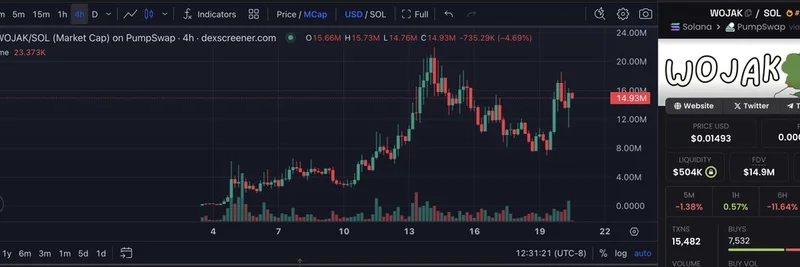In the fast-paced world of crypto, big announcements can send ripples through the market, especially when they involve traditional finance dipping its toes into blockchain. That's exactly what happened when Open Campus dropped the news of a strategic partnership with Animoca Brands and Rich Sparkle Holdings Limited, a NASDAQ-listed company trading under the ticker ANPA. This move includes plans for ANPA to scoop up to $50 million worth of EDU tokens over the next 24 months. If you're into meme tokens or broader blockchain tech, this is the kind of institutional buy-in that could signal bigger things ahead.
The buzz started with a tweet from Open Campus, quickly amplified by crypto thread writer StarPlatinum_, who broke it down in a compelling post. StarPlatinum_ highlighted how this isn't just any investment—it's the first crypto play for this NASDAQ firm, and they've chosen EDU as their entry point. For context, EDU is the native token of Open Campus, a protocol that's building an on-chain financial layer for education. Think of it as bringing student loans, credentials, and fraud prevention onto the blockchain, making education more accessible and secure.
Why This Partnership Matters
Let's unpack this a bit. Open Campus has been gaining traction with backing from heavy hitters like Animoca Brands, YZi Labs, Sequoia, and Caladan. Just recently, they raised $5 million in a round led by Animoca and Caladan, focusing on blockchain-based student finance and credential verification. Now, adding a publicly traded company like Rich Sparkle Holdings takes it to another level. According to the details, a subsidiary of Rich Sparkle will issue preferred shares to an Animoca investment vehicle, with Animoca contributing digital assets valued at $3 million, including Open Campus units.
This isn't fluff—it's real institutional capital flowing into crypto. For millions of students worldwide who struggle with access to credit, Open Campus's EduFi (education finance) model could be a game-changer. By putting credentials and loans on-chain, it reduces fraud and opens doors that traditional systems have kept shut. Governments are already collaborating with them, which adds a layer of legitimacy that's rare in the often wild west of blockchain.
The Crypto Angle: From Memes to Mainstream
While EDU itself is more of a utility token than a pure meme play, this development has implications for the meme token ecosystem too. Institutional adoption like this boosts overall market confidence, which can lift all boats—including those fun, community-driven meme coins we love. Animoca Brands, a key player here, has its fingers in tons of Web3 projects, from NFTs to games, and their involvement often sparks viral interest. If you're holding or eyeing meme tokens, watch how moves like this attract more "smart money" to the space, potentially creating crossover opportunities.
The community response on X was electric, with replies praising the shift toward real-world utility. One user noted, "smart money betting on students not degen casinos," capturing the sentiment perfectly. It's a reminder that while memes bring the hype, projects solving actual problems—like education access—can sustain long-term growth.
Looking Ahead
With EDU now boasting a solid cap table and real-world partnerships, the future looks bright for on-chain education. If you're a blockchain practitioner or just curious about where crypto meets real life, keep an eye on Open Campus. This $50 million commitment could be the start of a broader trend, where traditional finance embraces blockchain for social good.
For more details, check out the official announcement from Animoca Brands or dive into Open Campus's partners page. As always, DYOR (do your own research) before jumping in—crypto moves fast, and education might just be the next big frontier.


